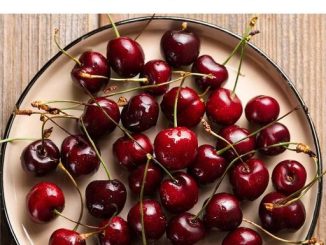Range hood lights are a staple in many kitchens, providing essential illumination over your stove and cooking area. While they’re incredibly useful during meal preparation, you might wonder whether it’s safe or practical to leave these lights on overnight. In this article, we’ll explore the safety aspects, energy considerations, and practical tips to help you decide whether running your range hood lights all night long is a good idea.

When it comes to running any electrical appliance continuously, safety is always a top concern. Modern range hoods are generally designed to handle prolonged use, including keeping the lights on for extended periods. However, there are a few safety factors to consider.
Electrical Safety
Most modern range hoods come equipped with built-in safety features that minimize the risk of electrical hazards. These features are designed to ensure that the lights can operate for long periods without overheating or causing any electrical issues. However, this safety is contingent on the range hood being in good working order.
It’s crucial to regularly inspect your range hood for any signs of damage or malfunction. Flickering lights, unusual noises, or a burning smell could indicate underlying issues that need to be addressed. If you notice any of these warning signs, it’s advisable to have your range hood checked by a professional before leaving the lights on overnight.
Fire Hazard
While the risk of fire from leaving range hood lights on overnight is minimal, it’s not entirely nonexistent. Any electrical appliance that runs continuously can pose a potential fire hazard if it’s faulty or poorly maintained. Therefore, ensuring your range hood is clean, free of grease build-up, and in good condition is essential for preventing any fire risks.
Energy Considerations: Weighing the Costs and Environmental Impact
Running the lights on your range hood overnight does have energy implications, albeit relatively small. Understanding how this affects both your energy consumption and the environment can help you make a more informed decision.
1. Energy Consumption
Range hood lights are typically low-wattage, meaning they don’t consume a significant amount of energy individually. However, when left on for extended periods, even low-wattage lights can contribute to an increase in your overall energy usage. If you’re someone who is mindful of energy costs, it’s worth considering how much energy these lights consume when left on overnight.
To put it in perspective, a 40-watt bulb running for eight hours overnight would use about 0.32 kWh. While this might seem negligible, it can add up over time, especially if you leave other lights or appliances running unnecessarily.
2. Environmental Impact

Beyond the cost, there’s also the environmental impact to consider. Continuous use of electrical appliances contributes to higher energy consumption, which in turn has environmental consequences. Reducing unnecessary energy use is a small but meaningful way to lower your carbon footprint and promote more sustainable living practices.
While the impact of leaving a single range hood light on might be small, collectively, every little bit of energy-saving can contribute to a larger environmental benefit.
Practical Tips: How to Use Range Hood Lights Efficiently
If you’re concerned about safety, energy use, or just want to ensure that your range hood lights are used efficiently, there are a few practical steps you can take.
1. Install a Timer

One of the simplest and most effective ways to manage your range hood light usage is by installing a timer. A timer allows you to set specific times for the lights to turn off automatically, ensuring they’re not left on all night inadvertently. This not only conserves energy but also reduces any potential safety risks associated with running the lights continuously.
2. Use LED Bulbs
If your range hood lights aren’t already equipped with LED bulbs, consider making the switch. LED bulbs consume significantly less energy than traditional incandescent bulbs and have a much longer lifespan. They also produce less heat, reducing the risk of overheating, which can be an added safety benefit if you do decide to leave the lights on for longer periods.
3. Regular Maintenance
Keeping your range hood and its lights well-maintained is crucial for safe operation. Regularly clean the filters to prevent grease build-up, which can be a fire hazard, and check the lights and wiring for any signs of wear or damage. Well-maintained appliances are not only safer but also more energy-efficient, helping you save on energy costs over time.
4. Consider Motion Sensor Lights

For those who want to avoid leaving lights on unnecessarily, motion sensor lights can be a smart solution. These lights turn on when they detect movement and automatically turn off after a period of inactivity. This ensures that the lights are only on when needed, helping to conserve energy and enhance safety.
Leaving your range hood lights on overnight is generally safe, provided that your appliance is in good working condition and regularly maintained. However, it’s essential to weigh the small but cumulative impact on energy consumption and the environment. By implementing practical solutions like installing a timer, using energy-efficient LED bulbs, and maintaining your range hood, you can safely and efficiently use your range hood lights.
Ultimately, whether or not to leave the lights on overnight comes down to personal preference and circumstances. If the light provides necessary illumination for safety or security reasons, the benefits may outweigh the minimal costs. However, if the lights are left on out of habit or convenience, consider adopting one of the energy-saving strategies mentioned above to reduce waste and ensure your home remains safe and efficient.


